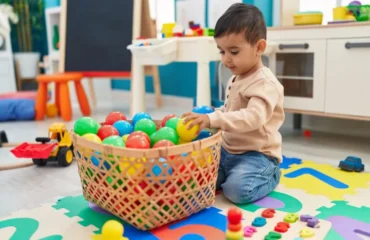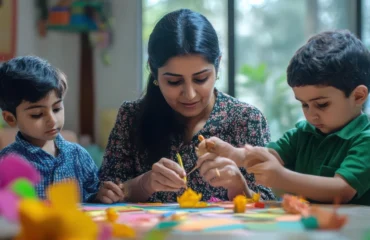
We often encounter parents searching “best primary schools near me” on the web. Honestly, choosing the right primary school for your child is one of the biggest decisions you will make as a parent. It’s not just about finding a great quality education but also about finding a place where your little one feels safe, inspired, and excited to come back every day.
However, with so many options, choosing the one that best suits our child is challenging. In this article, we have covered the top 5 primary schools in Noida. If you are a resident of Noida, you may consider enrolling your child in any of these institutions. So let’s get started!
How to Choose the Best Primary School Near You
Are you constantly browsing the web by searching “best primary schools near me?” or “how to find the best primary school near me?”. Keep reading this space to know what are the factors to consider for choosing the best primary school near you for your child.
Understand Your Child’s Learning Needs
Every child has a unique way of learning, and the right school should cater to their individual needs. Some children thrive in structured environments where discipline and routine are emphasized, while others excel in more creative or interactive learning spaces that encourage curiosity and exploration. Before beginning your search, take some time to observe your child’s strengths and interests, and choose a school accordingly.
Evaluate the School’s Curriculum and Teaching Methods
The curriculum of a primary school plays a crucial role in shaping your child’s future learning experience. In India, most schools follow one of several educational boards, each with its own approach to teaching and assessment. Some of the most common educational boards in India are CBSE (Central Board of Secondary Education), ICSE (Indian Certificate of Secondary Education), IB (International Baccalaureate) and IGCSE (International General Certificate of Secondary Education). Apart from the board of education, consider the school’s overall teaching philosophy. Choose a school that aligns with your child’s needs and your long-term vision for their education.
Check the School’s Reputation and Reviews
A school’s reputation is built over time through the quality of education, faculty, infrastructure, and overall student experience. One of the best ways to assess a school’s credibility is by speaking to parents of existing students. They can offer firsthand insights into the school’s academic standards, discipline policies, extracurricular activities, and overall culture.
In addition to personal recommendations, online reviews on platforms like Google can provide valuable perspectives. Look at the school’s accreditations, rankings, and any awards or recognitions they may have received. Schools with strong reputations usually have a long-standing history of academic excellence, a committed teaching staff, and a strong alumni network.
Assess the Infrastructure and Facilities
The learning environment significantly influences a child’s development. A well-equipped school with modern infrastructure can enhance the overall learning experience. While visiting potential schools, observe whether classrooms are spacious, well-lit, and equipped with modern teaching aids such as smart boards and projectors. A well-stocked library, computer labs, and science labs indicate a school’s commitment to holistic education.
Physical development is just as important as academic learning, so ensure the school has sufficient outdoor space for sports and recreational activities. Look for well-maintained playgrounds, sports facilities, and areas for extracurricular activities such as music, dance, and drama. Additionally, safety measures such as CCTV surveillance, emergency preparedness, and secure entry-exit points are critical factors that should not be overlooked.
Also read: First Step to a Bright Future: Exploring the Importance of Preschool Education
Consider Extracurricular Activities and Holistic Development
While academics are essential, a well-rounded education includes extracurricular activities that develop creativity, teamwork, and leadership skills. Schools that offer a diverse range of extracurricular programs—such as arts, music, sports, drama, coding, and debate—provide children with opportunities to explore their interests beyond textbooks.
Location and Accessibility Matter
The distance between your home and the school is another crucial factor to consider. A long daily commute can be exhausting for young children and may affect their ability to focus in class. Ideally, choose a school that is easily accessible and has a reliable transport system. If the school provides bus services, ensure they have proper safety measures in place, such as GPS tracking and trained attendants.
Teacher-Student Ratio and Quality of Faculty
The quality of teachers and the teacher-student ratio are vital components of a good primary school. A lower teacher-student ratio allows for more individualized attention, ensuring that each child gets the necessary support to learn and grow. Schools with well-qualified, experienced, and trained educators create a nurturing environment that fosters curiosity and confidence.
FAQs:
What age group is eligible for primary school admission?
Most primary schools admit children between the ages of 5 to 7 years, depending on the school’s curriculum and local education policies.
How do I find the best primary schools near me?
You can start by researching online, checking school websites, reading parent reviews, visiting schools, and considering factors like curriculum, facilities, teacher experience, and extracurricular activities to find the best primary schools near me.
Do private primary schools near me offer transportation services?
Most schools provide bus or van services, but availability depends on your location. It’s best to check with the school about routes, safety measures, and additional costs.





